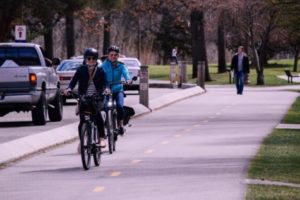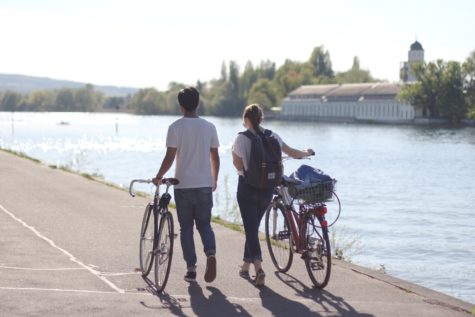UNIVERSITY PARK, Pa. — More commuters are ditching the car in favor of a more active way to commute, but plenty of folks are simply put off by the thought of time it would take to bike or walk to work. A new study finds, however, that those calculations are commonly mistaken and people tend to overestimate their commuting time on foot or by bicycle.
Biking, walking, and other “active travel” options have advantages to individuals and cities as a whole. Individuals, of course, get more exercise and are healthier, while contributing to a cleaner environment. Still, the overwhelming majority of Americans take a car to work. Researchers at Penn State University sought to find out how far off people would be from correct commute times should they guess how long it would take them to walk or bike to a well-visited place in town. The majority of them estimated incorrectly.

“People in general aren’t very good at estimating how long it’s going to take to get somewhere,” associate professor of kinesiology at PSU Melissa Bopp explains in a university release. “That’s problematic when you’re trying to get someone to walk or bike somewhere. Traveling by foot or bike has a lot of benefits, but not a lot of people do it. They may think they can’t do it because it’s too far and it’ll take too long, when it turns out it’s really not.”
Of the 253 faculty and staff at PSU and 252 students surveyed by Bopp and her team, 91% misestimated how long it would take them to walk to campus from their home, and 93% misestimated how long it would take to bike. Students were far better than staff and faculty: 55% incorrectly guessed walking times, while just 43% were off on their biking times. Almost everyone who misestimated commute times in this study overestimated.
Bopp believes that self-confidence was also factor: “For faculty and staff, self-confidence for walking and biking in town or on campus was a huge predictor. We can have all the bike lanes in the world, but if you don’t feel confident to go out there and bike, then you’re not going to do it. But luckily, self-confidence is a targetable thing. Providing education, encouragement and resources can help with that. There are urban biking classes you can take, for example.”
Ultimately, the researchers concluded that lack of knowledge about alternative commuting methods kept workers from giving them a go. That includes researching potential shortcuts and paths people could take, rather than following the same route they’d use via car.
“Experience with active transportation will usually give someone a better understanding of how long it actually takes to commute by bike or on foot,” says Dangaia Sims, who worked on the study while earning her doctorate in kinesiology at the university. “While efforts can be taken to better educate the general public of how long it actually takes to commute somewhere via active modes, we recommend that they actually try it out for themselves. Often people indicate that the reason they choose to drive is that its much quicker than walking or biking when, in reality, that may not be the case.”
